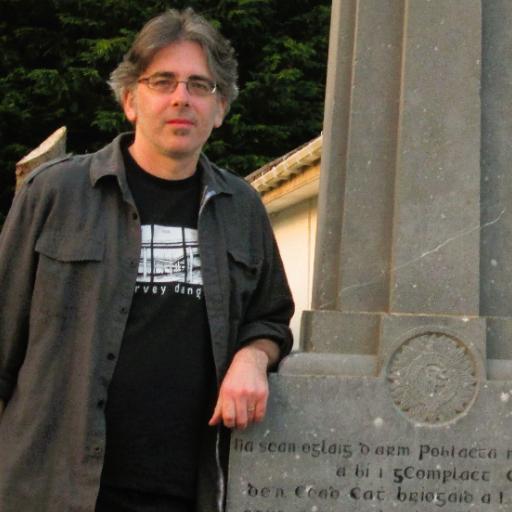
Gavin Foster, PhD
- Professor Modern Irish History and Principal, School of Irish Studies
Are you the profile owner?
Sign in to editContact information
Email:
Biography
Gavin Foster (PhD, University of Notre Dame, 2009) is Professor of modern Irish history in the School of Irish Studies, with a cross-appointment in History. His research has focused on the early twentieth-century Irish revolutionary period, as well as its pre-history and legacies. His research themes have included the IRA and republican political culture, political violence, party and state formation, social conflict, class and respectability, labour history, migration, popular culture including clothing, commemorationism and social memory.
His monograph, The Irish Civil War and Society: Politics, Class and Conflict (Palgrave Macmillan, 2015) won the American Conference for Irish Studies’ 2015 James S. Donnelly, Sr. Prize for Books on History and Social Sciences. His articles and essays have appeared in the Field Day Review; Saothar: Journal of the Irish Labour History Society; Éire-Ireland: Journal of Irish Studies; New Hibernia Review; History Ireland; Contemporary European History; Canadian Journal of Irish Studies; Journal of the Old Athlone Society; and the Dublin Review of Books, among others. He has also contributed book chapters to the following edited collections: D. Gannon and F. McGarry (eds.), Ireland 1922: Independence, Partition, Civil War (Royal Irish Academy, 2022); Maurice Bric(ed.), Kerry: History and Society (County History Series) (Geography Publications, 2020); John Gibney (ed.), The Irish War of Independence and Civil War (Pen and Sword History, 2020); K. Matthews and J. Countryman (eds.) The Country of the Young: Interpretations of Youth and Childhood in Irish Culture (Four Courts Press, 2013); and the award winning Atlas of the Irish Revolution (Cork University Press, 2017) and its associated website. Outside of books and articles, he has also presented his work at numerous conferences in the U.S., Canada, Ireland, and elsewhere and appears on various podcasts and videos, including RTÉ’s Irish Revolution centenary website and a three-part Irish Civil War television documentary (2022; Dir. Ruan Mangan). Initially funded by a grant from FQRSC, Dr. Foster’s current work uses oral history interviews and local fieldwork in Ireland to explore later-generation memory of the Irish Civil War.
In terms of teaching, Dr. Foster’s undergraduate courses include a modern Irish survey course (History of Ireland) and elective courses on the Great Famine, the Irish Revolution, the Northern Irish Troubles, independent Ireland, and comparative Scottish and Irish unions, plus seminars on History and Memory and interdisciplinary methods in Irish Studies. He also supervises and works with History PhD and MA students pursuing projects on modern Ireland (especially the early 20th century). Dr. Foster has served as a Core Member of Concordia’s Centre for Oral History and Digital Storytelling, a book reviews editor for the Canadian Journal of Irish Studies, and Principal of the School of Irish Studies.

